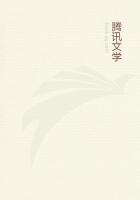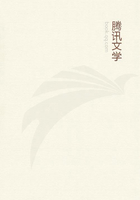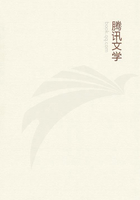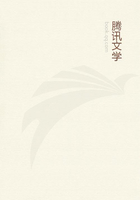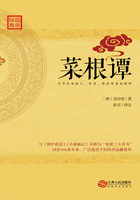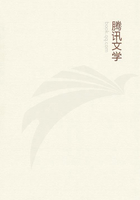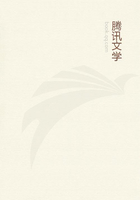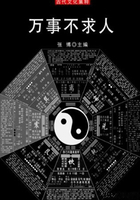Empiricism, experience, the collection of facts, the evidence of the senses, the avoidance of philosophical speculations, were the distinguishing features of Hippocratic medicine. One of the most striking contributions of Hippocrates is the recognition that diseases are only part of the processes of nature, that there is nothing divine or sacred about them. With reference to epilepsy,which was regarded as a sacred disease, he says, "It appears to me to be no wise more divine nor more sacred than other diseases, but has a natural cause from which it originates like other affections; men regard its nature and cause as divine from ignorance." And in another place he remarks that each disease has its own nature, and that no one arises without a natural cause. He seems to have been the first to grasp the conception of the great healing powers of nature. In his long experience with the cures in the temples, he must have seen scores of instances in which the god had worked the miracle through the vis medicatrix naturae; and to the shrewd wisdom of his practical suggestions in treatment may be attributed in large part the extraordinary vogue which the great Coan has enjoyed for twenty-five centuries. One may appreciate the veneration with which the Father of Medicine was regarded by the attribute "divine" which was usually attached to his name. Listen to this for directness and honesty of speech taken from the work on the joints characterized by Littre as "the great surgical monument of antiquity": "I have written this down deliberately, believing it is valuable to learn of unsuccessful experiments, and to know the causes of their non-success."
The note of freedom is not less remarkable throughout the Hippocratic writings, and it is not easy to understand how a man brought up and practicing within the precincts of a famous AEsculapian temple could have divorced himself so wholly from the superstitions and vagaries of the cult. There are probably grounds for Pliny's suggestion that he benefited by the receipts written in the temple, registered by the sick cured of any disease. "Afterwards," Pliny goes on to remark in his characteristic way, "hee professed that course of Physicke which is called Clinice Wherby physicians found such sweetnesse that afterwards there was no measure nor end of fees" ("Natural History," XXIX, 1). There is no reference in the Hippocratic writings to divination; incubation sleep is not often mentioned, and charms, incantations or the practice of astrology but rarely.
Here and there we do find practices which jar upon modern feeling, but on the whole we feel in reading the Hippocratic writings nearer to their spirit than to that of the Arabians or of the many writers of the fifteenth and sixteenth centuries A.
D. And it is not only against the thaumaturgic powers that the Hippocratic writings protested, but they express an equally active reaction against the excesses and defects of the new philosophy, a point brought out very clearly by Gomperz.[24] He regards it as an undying glory of the school of Cos that after years of vague, restless speculation it introduces steady sedentary habits into the intellectual life of mankind. "
'Fiction to the right! Reality to the left!' was the battle-cry of this school in the war they were the first to wage against the excesses and defects of the nature-philosophy. "Though the protest was effective in certain directions, we shall see that the authors of the Hippocratic writings could not entirely escape from the hypotheses of the older philosophers.
[24] Gomperz: Greek Thinkers, Vol. I, p. 296.
I can do no more than indicate in the briefest possible way some of the more important views ascribed to Hippocrates. We cannot touch upon the disputes between the Coan and Cnidian schools.[25]
You must bear in mind that the Greeks at this time had no human anatomy. Dissections were impossible; their physiology was of the crudest character, strongly dominated by the philosophies.
Empedocles regarded the four elements, fire, air, earth and water, as "the roots of all things," and this became the corner stone in the humoral pathology of Hippocrates. As in the Macrocosm-- the world at large there were four elements, fire, air, earth, and water, so in the Microcosm--the world of man's body--there were four humors (elements), viz.,blood, phlegm, yellow bile (or choler) and black bile (or melancholy),and they corresponded to the four qualities of matter, heat, cold, dryness and moisture. For more than two thousand years these views prevailed. In his "Regiment of Life" (1546) Thomas Phaer says:". . . which humours are called ye sones of the Elements because they be complexioned like the foure Elements, for like as the Ayre is hot and moyst: so is the blooud, hote and moyste. And as Fyer is hote and dry: so is Cholere hote and dry. And as water is colde and moyst:so is fleume colde and moyste. And as the Earth is colde and dry: so Melancholy is colde and dry."[26]
[25] The student who wishes a fuller account is referred to the histories of (a) Neuburger, Vol. 1, Oxford, 1910; (b) Withington, London, 1894.
[26] Thomas Phaer: Regiment of Life, London, 1546.
As the famous Regimen Sanitatis of Salernum, the popular family hand-book of the Middle Ages, says:
Foure Humours raigne within our bodies wholly, And these compared to foure elements.[27]
[27] The Englishman's Doctor, or the Schoole of Salerne, Sir John Harington's translation, London, 1608, p. 2. Edited by Francis R. Packard, New York, 1920, p. 132. Harington's book originally appeared dated: London 1607. (Hoe copy in the Henry E. Huntington Library.)

